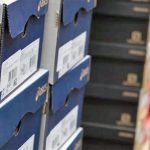The Committee for the Implementation of Textile Agreements, an interagency committee chaired by the US Department of Commerce, sent a letter to Outdoor Industry Association (OIA) and SnowSports Industries America (SIA) recently informing the industry that it has revised the definition of ski and snowboard pants that are exempt from the quota on man-made fiber pants from China.
SIA and OIA met several times with the CITA Chairman, officials of the CITA agencies, and other administration officials in recent months urging the committee to address problems with implementation of the exemption, which was included in the November 2005 US-China apparel agreement.
The revised definition will be effective July, 1, 2006 and is as follows:
For the purposes of subheadings 6203.43.3510, 6204.63.3010, 6210.40.5031 and 6210.50.5031, the term “ski and snowboard pants” means ankle-length pants made of synthetic fabrics, with or without insulation for cold weather protection, with pockets, at least one of which has a zippered or hook and loop closure, sealed seams at the front (up to the zipper or other means of closure) and back rise, hidden leg sleeves with a means of tightening at the ankle, and with one of more the following: side openings, scuff guards or reinforcement in the seat. A sealed seam is one that is sealed by the means of taping, gluing, bonding, cementing, fusing or similar process so that air and water cannot pass through.
“The revised definition solves one immediate problem: it allows companies who produce woven performance ski and snowboard pants to take full advantage of the intended exemption for such pants by clarifying the definition. Both SIA and OIA members had been adversely affected by the narrow interpretation of the original language. We appreciate CITAs clarification of this matter,” said David Ingemie, president of SIA.
“However, we are extremely disappointed that this ruling fails to address the core issue: that American makers of innovative outdoor apparel have no domestic commercial sources to rely upon, yet continue to be included in quota systems that unfairly exposed businesses to potential embargoes,” said Frank Hugelmeyer, president of Outdoor Industry Association.
OIA and SIA will continue to work with the administration and Congress to address the remaining problems with the exemption.
Apparel companies impacted by the quotas on Chinese goods are strongly urged to review their own supply requirements and to move quickly to obtain the necessary quota to cover their 2006 imports.















